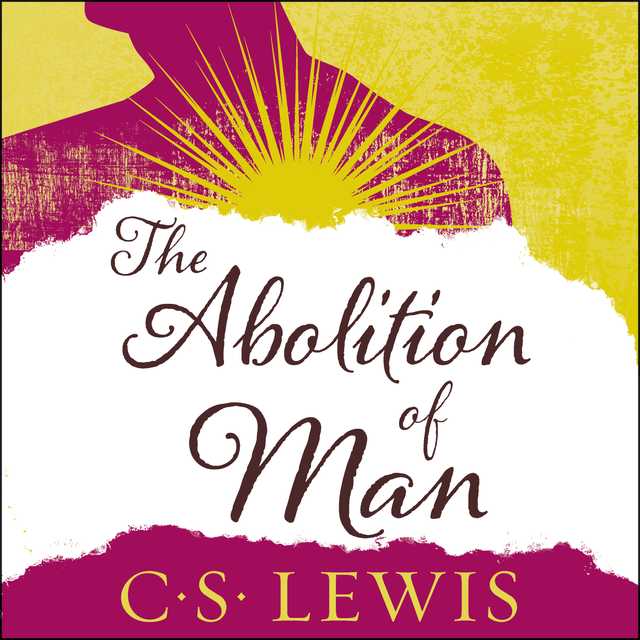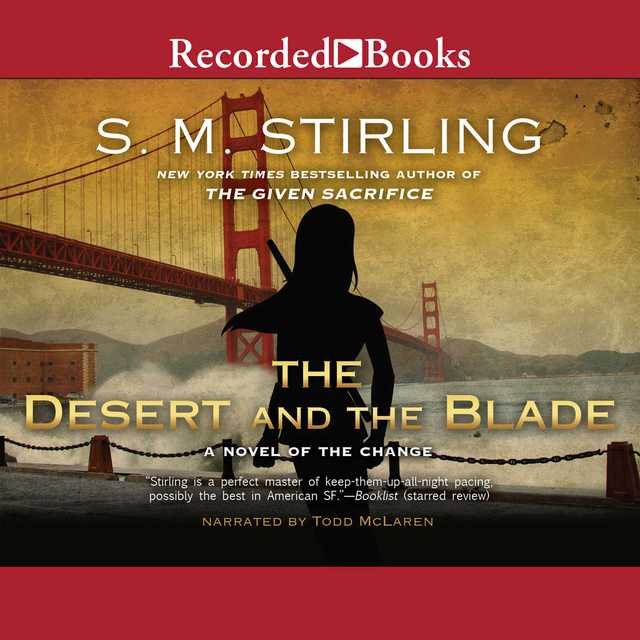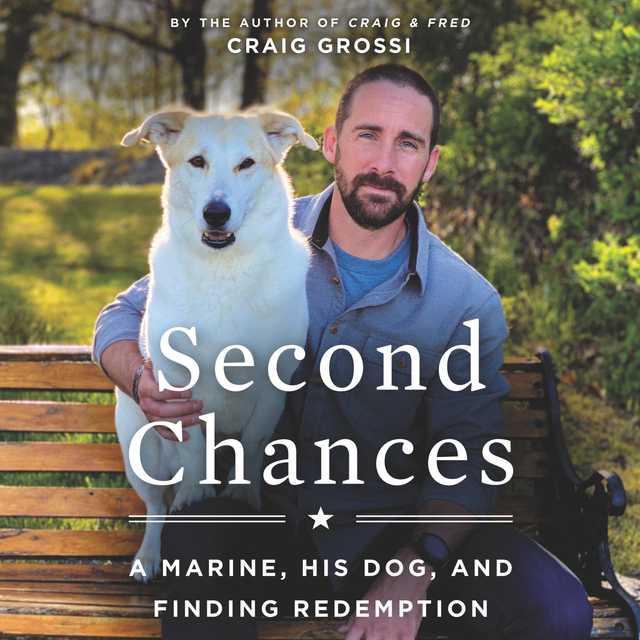The Abolition of Man Audiobook Summary
In the classic The Abolition of Man, C.S. Lewis, the most important Christian writer of the 20th century, sets out to persuade his audience of the importance and relevance of universal values such as courage and honor in contemporary society. Both astonishing and prophetic, The Abolition of Man is one of the most debated of Lewis’s extraordinary works. National Review chose it as number seven on their “100 Best Nonfiction Books of the Twentieth Century.”
Other Top Audiobooks
The Abolition of Man Audiobook Narrator
Douglas Gresham is the narrator of The Abolition of Man audiobook that was written by C. S. Lewis
Clive Staples Lewis (1898-1963) was one of the intellectual giants of the twentieth century and arguably one of the most influential writers of his day. He was a Fellow and Tutor in English Literature at Oxford University until 1954, when he was unanimously elected to the Chair of Medieval and Renaissance Literature at Cambridge University, a position he held until his retirement. He wrote more than thirty books, allowing him to reach a vast audience, and his works continue to attract thousands of new readers every year. His most distinguished and popular accomplishments include Out of the Silent Planet, The Great Divorce, The Screwtape Letters, and the universally acknowledged classics The Chronicles of Narnia. To date, the Narnia books have sold over 100 million copies and have been transformed into three major motion pictures.
Clive Staples Lewis (1898-1963) fue uno de los intelectuales más importantes del siglo veinte y podría decirse que fue el escritor cristiano más influyente de su tiempo. Fue profesor particular de literatura inglesa y miembro de la junta de gobierno en la Universidad Oxford hasta 1954, cuando fue nombrado profesor de literatura medieval y renacentista en la Universidad Cambridge, cargo que desempeñó hasta que se jubiló. Sus contribuciones a la crítica literaria, literatura infantil, literatura fantástica y teología popular le trajeron fama y aclamación a nivel internacional. C. S. Lewis escribió más de treinta libros, lo cual le permitió alcanzar una enorme audiencia, y sus obras aún atraen a miles de nuevos lectores cada año. Sus más distinguidas y populares obras incluyen Las Crónicas de Narnia, Los Cuatro Amores, Cartas del Diablo a Su Sobrino y Mero Cristianismo.
About the Author(s) of The Abolition of Man
C. S. Lewis is the author of The Abolition of Man
More From the Same
- Publisher : HarperAudio
- Abraham
- American Gods [TV Tie-In]
- Dead Ringer
- House of Sand and Fog
- Prey
The Abolition of Man Full Details
| Narrator | Douglas Gresham |
| Length | 1 hours 36 minutes |
| Author | C. S. Lewis |
| Category | |
| Publisher | HarperAudio |
| Release date | May 13, 2014 |
| ISBN | 9780062342713 |
Subjects
The publisher of the The Abolition of Man is HarperAudio. includes the following subjects: The BISAC Subject Code is Apologetics, Christian Theology, Religion
Additional info
The publisher of the The Abolition of Man is HarperAudio. The imprint is HarperAudio. It is supplied by HarperAudio. The ISBN-13 is 9780062342713.
Global Availability
This book is only available in the United States.
Goodreads Reviews
Tim
March 12, 2010
When things get bad, I take out the bourbon. When, as occasionally happens, time drags on and things don't get any better, I put the bourbon away and take out C. S. Lewis. His books are short, readable, and filled with an uncanny amount of wisdom. His genius, and the reason he's always been a comfort to me, lies in his ability to convince me that the world as it appears to be, the world that seems so oppressive, is not the whole story. The lifeline of depression, the fuel from which it draws all of its power, is the mind's misguided belief that it is able to encompass the complete truth about past, present, and future. C. S. Lewis invites the mind into a conversation, using humor, commonplace observations, and logic. He welcomes you into a warm place, like visiting your grandparents at Christmas when you were eight years old. He takes hold of the worldview that led you to him. With gentle, honest, understanding hands he wraps his palms around the neck of that worldview and proceeds to strangle it until it is dead, dead, dead.Lewis is known as a Christian writer. Most people I know want absolutely nothing to do with Christianity, to the extent that, for example, a friend of mine told me that despite my fervent recommendation, he refused to listen to anything by Leonard Cohen because he "heard he sang about religion." Though this particular book is not about Christianity, if you are of the camp that really doesn't want to hear the first word from someone who is religious, you may find this book annoying. Be forewarned.The book is divided into three sections. The first, "Men Without Chests," begins with an example taken from a grade school grammar textbook. In the example, the authors of the textbook imply that there are no sublime things in the world, only feelings of sublimity within us. There is nothing that really deserves respect or castigation, no right responses or ways of thinking about things: there is only opinion.Against this idea Lewis brings to bear the moral and ethical traditions of basically every culture that has ever existed. He lists all the rather startling similarities between, for example, Confucianism, Greek culture, Hinduism, and Jewish and Christian moral tradition. I'm talking about things like finding joy in children, having reverence for old people, respecting your neighbor, being courageous, helping those less fortunate, protecting your family, and not lying about other people for your own gain. In fact, in a long appendix at the end of the book, Lewis takes each of these ideas and gives examples of it in a myriad of different cultures throughout history.Lewis calls this group of ethical ideas "The Tao." And it is at this point that the book gets really startling. First, these ideas are of a dual nature. They are somehow natural to man (exemplified by their reappearance throughout history), yet at the same time they must be taught from one generation to the next. I see this in my three year old son. Through great effort, again and again, I try to teach him to respect other people. Not to, for example, hit other people when he is angry. The behavior I'm trying to teach is, most emphatically, not what comes naturally to him.Yet even in my own personal example I can see the duality Lewis talks about. What arguments can I make to dissuade him from hitting someone out of anger? "If you do it and I see you, I will punish you"? But that's not an argument against doing it, it's an argument against getting caught. "How would you like it if someone did that to you?" But we're not talking about someone doing that to him, we're talking about him doing it to someone else. (He pointed this out, by the way.)In the end, and it has taken me quite a bit of thought to understand this, I have to actually convince him that it's wrong. And this is something different than logical argument. In order to do it, there must be some latent sense of...what? Justice? Proportion? Something that already exists within him that my words can latch on to. Something already within him that the word "wrong" speaks to. So the duality is there, present in the facts that I a) have to teach him this and, b) can only make him really understand it and feel it by appealing to something which he already possesses and carries with him. The main point is this: the idea of what one ought to do cannot be brought before the judge of logic. Lewis made me realize that the word "ought," used so often in our culture, is in fact one of the strangest words ever. What does it really mean?Fortunately (and here comes another startling argument from Lewis) great thinkers like Aristotle and Plato have already thought over this idea. What is "ought"? Whatever it is it's the same thing, it comes from the same place in our thoughts (or our bodies), that our appreciation of good art comes from. The organ used to judge beauty is one and the same as the organ that tells you what you ought to do.When I read this, I almost couldn't believe it. Of course, I've heard this argument before: I remember writing "What the fuck are you talking about?" in the margins of my copy of Plato's dialogues when he brought up much the same argument. At the time, I thought it was completely ridiculous. But reading it now, in the present, it seemed startlingly true.I thought back to some of the times I've had a strong sense of "ought". Years ago, exhausted and tired, my girlfriend and I were driving home from a late night movie. Rounding the curve of a deserted Austin freeway at three in the morning, our car passed a lone truck, sitting still by the side of the road, rammed into one of those gargantuan streetlights they've put up every 100 feet or so. The streetlight had broken at its base and fallen directly on top of the cab of the truck. In the compressed seconds after the image of the truck flashed by, the following thoughts went through my mind: I ought to pull over this car, run over there, and do what I can to help. I don't have a cell phone. I don't have any medical training. There's nothing I can do. I'm really tired. Somebody else with a cell phone will be along in a minute or two. Could I really make any kind of difference? What if there's a lot of blood and I have to take him to the hospital? I don't even know if there's anybody in that truck.While all these thoughts were going on in my head, my stomach was fluttering with worry. But in between...in between my stomach and my head, there was another place: the chest. What we often refer to as the heart. While one part of me was fluttering with emotion, and another part was dithering with logic, this third part spoke its solution with an almost harmonic simplicity. I mean that though my chest (my heart) spoke a single answer, it felt as if this answer were made of a number of unified objects or notes or ideas. Like when someone strikes an e-major on a well-tuned guitar.That, I think, is the "ought" that Lewis is talking about. And he is right: it does come from the chest. It is the chest. Compare this to the experience of viewing something really beautiful, such as a cathedral or sculpture or a vast rock wall, full of shades and contrast, carved out over centuries by falling water. Lewis claims that you will realize, perhaps to your surprise, that the two feelings come from exactly the same organ.The more I read of books written from the 1900s onward, the more I become convinced that we are all in the middle of a fierce debate that started somewhere around that time, and that continues on to this day. This debate is over the future of mankind, the meaning of progress and, in the end, what it means to be human. The remainder of the book concerns this debate. During Lewis's time eugenics was popular. One hopes that the current reader will regard, as Lewis did, the concept with great distaste. But however unpopular eugenics may be at the moment, Lewis points out that it is the concepts and philosophical ideas behind eugenics that are what are truly hideous. Any vision of a perfect utopian society, or of any real progression toward it, must hold somewhere within its core, whether acknowledged or not, the idea that people must be changed. People must be made "better." And the only way to do this, in the end, is to strike at the heart, the chest, inside each person. The only way is to attempt to change that organ, that function, that I have been trying to describe.This is the meaning of the title of the book. Lewis argues that the essence of what man is can be found in that organ in the chest, the heart. And in order to achieve utopia, men in power are more than willing to modify, dull, or, if necessary, rip out the heart in order to achieve their goal. And when they do so, they will discover, to their (perhaps) horror, that what they have left is not a man at all.Examples of this kind of coerced modification of the chest can be listed endlessly. To use the media to present something as ugly which people never thought of as ugly before. Or to make people think of certain other people as weak and diseased who are not. Or to deliberately try to make people afraid out of all proportion to what they have to fear. Or to attempt to redefine what people ought to do, based on the recommendations of some experts. Or to paint some people as corrupt and evil, and as the cause of the problems of society.In the end, the ugliness comes from looking at another person and judging them: judging the "ought" they have come to within themselves. That, after all, is what you are doing every time you say you need to make a person (or group of people) better. As it is, this would just be ugliness. But when the massive power and coercion of the state becomes involved, as it always seems to, then the ugliness turns into something much, much worse. The course of history over the last century will provide plenty of examples, all provided courtesy of people whose goal was to make mankind better. Of course, now that we all recognize how horrific all of that was, we are no longer engaged in the business of making people better. We are no longer involved in using the pronouncements of doctors, scientists, famous people, and intellectuals to dictate through force or influence what people ought to do, or how they ought to think. Nor do we disparage those with ideas different from the common culture. Nor does society lean on businesses, artists, and families to believe and behave in certain ways. Now, we recognize that a diverse, vibrant society takes all kinds of viewpoints. As long as none of those viewpoints profess or seem to profess any wrong ideas, all voices are welcome. We invite everyone to join in the national discussion about which of the many new laws being proposed are the best ones to get people to behave more like they ought to, and to move our society into a better future.As if all this weren't enough content for a rather flimsy paperback, there is yet another startling argument that Mr. Lewis makes. He calls our attention to the nature of science. Accepting that science has certainly given us many wonderful things, can we say anything about what, exactly, science is?Science is a way of looking at material objects in which we deliberately dismiss some aspects of those objects. Not only spiritual or emotional aspects, but also even physical aspects that are not of concern to the nature of our inquiry. In science, we deliberately blind ourselves to the whole of something, in order to better understand some part of it. Many would argue, perhaps truthfully, that a clear understanding of the parts leads to a better understanding of the whole. Certainly, a clearer understanding of the parts allows us in many cases to manipulate the whole.Through a really inspired comparison of Bacon's New Organon to Goethe's Faust, Mr. Lewis argues that, in doing this, we are making a kind of deal. The result will be increased ability to get the stuff we want: medicines, airplanes, cheap food, more leisure time, sex without pregnancy. And what are we giving up to get all this stuff that we want? Are we giving up anything?Before I read this book, my answer would have been: "No. What could we possibly be giving up?" Now, I'm not so sure.Mr. Lewis states emphatically that he is not anti-science. He just wants us to be clear about what we are doing when we embrace science whole-heartedly. I think that's fair. If we pretend we are not making a choice when in fact we are, then somewhere down the line a point is going to arise when there are consequences that we didn't realize. I think that time is now. I think the fact that we have made this choice, and we didn't realize we were making a choice at all, has resulted in many of the conflicting views in our current society.What are we giving up? We are giving up our view of the whole object: the object with all of its philosophical, emotional, and spiritual aspects intact. This is, in actuality, the object as it appears to us before we apply the scalpel of science to it. Yes, science can help us find out things, but only by a deliberate destruction, in our minds and often in physical reality, of the whole of the thing.Take the following story as an example. In college, during a cat dissection, my partner and I were working on the large intestine. The room smelled of formaldehyde and our cat was stretched on a stainless steel table, his four paws tied with rope to allow us the easiest access to cut into his chest cavity. Our lab assistant came over. "Oh, let me show you this," he said. We stood back. He gathered the intestines in his hand and plopped them out onto the table beside the cat's body. There was a thin membrane covering them which he proceeded to pull off and stretch out. It stretched like a balloon, him pulling the transparent membrane between his hands. There were blue and red vessels (colored with some kind of dye they'd put into the cat) running through the membrane that reminded me of scraggly branches of trees.He held the membrane up, still stretched between his fingers. I saw his face on the other side of the membrane, staring at the criss-crossing vessels. "Isn't it absolutely beautiful?" he said.It was beautiful. But suddenly I was hit with the strangeness of what we were doing. That membrane was never meant to be stretched out like that: between someone's hands in a lab room. Those veins were never meant to be that color. That cat, whatever he was, whatever personality he had, was gone forever. The cat as he had been presented to the world, a living organism with certain habits and tendencies, in fact a unique thing in all the history of the world, had been destroyed. This was done so that we could learn something that ostensibly was about all cats, and was about ourselves as well: how the organs in mammals function.I am not against dissections. I'm glad I did it and I would do it again. My only point is that a choice was made. Our minds were made to focus on certain aspects of the cat at the expense of others.Mr. Lewis asks whether we don't lose some of our essential humanness in viewing things in this way. Do a dissection once and you might think about the things I thought about. Do it a thousand times and what happens?I chose a cat dissection as my example because I thought it might carry more weight with modern readers, distant as they are from slaughterhouses. But Mr. Lewis is actually talking about every aspect of science. I doubt anyone who reads this has performed a thousand dissections. But I would wager that there are things that everyone (including myself) who has grown up in our science-worshipping culture has thought about only scientifically a thousand times a thousand times. And Mr. Lewis argues, I think rightly, that this must have the same effect.I read this book four times, thought about it for weeks, and tried to boil down what I thought about it into something succinct. Obviously, I was unable to do so. Looking back over the review now, I see that I have, for example, neglected Mr. Lewis's incredibly profound statement that all that we think of as evil is simply the good of a part of The Tao magnified in importance so that it dwarfs all the other aspects of The Tao. That thought alone is worth the price of admission.There are probably five other main points of the book like this: points that I have missed. This book is simply too full of interesting points for any review of mine to do it justice. Five stars.
Douglas
July 23, 2017
Excellent. Read various times. Just listened to an audio version in the fall of 2015. Although I have read this book multiple times, the last time through on audio, I noticed that the last section contained layers I had not ever really understood. I listened to it again (Jan. 2016) with that in mind, and yep, definite layers. This book is deep.Listened to it again in October of 2016. And yet again in July of 2017.
Cindy
September 14, 2017
This book is definitely one that gets better the more times you read it. I can remember understanding very little of it except the famous paragraph at the end of the first chapter the first time I read it, “In a sort of ghastly simplicity we remove the organ and demand the function. We make men without chests and expect of them virtue and enterprise. We laugh at honour and are shocked to find traitors in our midst. We castrate and bid the geldings be fruitful.” Certainly, that paragraph itself is worthy of 5 stars.This time around, my fourth or fifth reading, I read it with our new book club in view, underlining and making notes for our group. This helped me see it with fresh eyes. I remembered how confusing it was the first time I read it and I was happy to realize more of it made sense to me now. Still can't say the whole thing was wide open to me but more than before.Let me add that today I believe the single most important message in this book is the use of the word 'debunking' by Lewis. As Christians we often guilty of being debunkers and I believe it is a way that we undermine our message even as we are giving it. We need to read this book often and ponder how we have joined the culture of debunking which is deadly.
Dean
July 20, 2020
Published in the 1940ths this is a work of a brilliant mind!!!C. S. Lewis "The Abolition of Man" is also a timeless wake up call to all of us..What does it means to be human?What about honor?Which values needs to be held up?Must we defend or surrender our way of life?For sure a work needed to be reread again and again..Entertains and teach at the same time!!I would say the right book for this time!!!Highly recommendable..Dean;)
Mike (the Paladin)
June 12, 2013
I've meant to read this for a long time. The edition of this I read had both The Great Divorce and The Abolition of Man. The Great Divorce is one of my all time favorite books, of any genre. This book is also excellent, though of a totally different type.This book will/does require multiple readings if we want to get the most out of it. Also considering when this book was written (1943) then looking at the world today and seeing how things have progressed it could be eye opening and even a bit frightening.I can recommend it highly. I will not try to lay out what the book is about and the premise of the book. I could never do it justice. C.S.Lewis was/is a gift to humankind and I'd really recommend his writings not be missed.Think you disagree because you're and atheist? I humbly suggest you actually read his writings and see if you disagree. After all C.S.Lewis was at one time a confirmed atheist also.Quote from, Surprised by Joy: "A young man who wishes to remain a sound atheist cannot be too careful of his reading." - C. S. Lewis
J. Aleksandr
April 21, 2020
Hard to start, easy to finish.Lewis apparently presumed his audience would be fellow academics, or at least persons educated in a common curriculum - an assumption which makes the opening pages difficult to follow. I was about 10 the first time I read this, with no background in "the well-known story of Coleridge at the waterfall" or "dulce et decorum est" (and no Internet to quickly look them up with). But over the first dozen or so pages Lewis finds his stride, and as the book's discussion moves from abstract subjectivity to "trained emotions" to morality and eugenics, that characteristic Lewisian clarity carries the reader forward.Abolition of Man is a short book. I've read it four times now, and I'm looking forward to reading it again.
Carol Bakker
May 02, 2022
2022: Added a star this reading. I still find it quite challenging. 2020: I didn't factor how difficult I would find C.S. Lewis to sometimes be. I first listened to this book as I walked. Bad idea. It ricocheted off my brain. I read the words. I listened and read together. Finally, I watched the book/listened to audio with CSLewisDoodle on You Tube. It truly improved with each excursion, and by improving I mean my understanding inched forward. One thing about C.S. Lewis: his ideas are as relevant now as they were in 1944.In short, I want to give this five stars; alas, in order to love it, I feel I should get it.I certainly want to take another go at this in the future.
Tori
March 17, 2022
While I can't claim to have understood everything in this book, I understood enough to know that C.S. Lewis anticipated postmodernism in all its destructive power. The further you read, the more you will realize that we are living amid the abolition of man. We are now in a world that has wholeheartedly embraced debunking, denied the existence of universal values, fallen back on feelings and impulses, and thrown humanity into the pit of destruction. Isn't this pointed line from Lewis exactly what afflicts our world right now? "When all that says 'it is good' has been debunked, what says 'I want' remains." I want, I want, I want. Lewis has nailed it. Throw universal values out, and all that's left is chasing one's misguided pleasures and following whatever impulse carries the most emotional weight at the time. Scripture would call this doing what is right in your own eyes (see the entire book of Judges) or being "slaves to various passions and pleasures" (Titus 3:3).Along the road to describing the abolition of man, Lewis lands upon another key idea worthy of our consideration: the creation of "men without chests" (an idea based on the Platonic view of the tripartite soul). Men without chests is our ruin. The head must rule through the chest, lest the belly become king, which means we must train people (and ideally, train them when they are children) "to feel pleasure, liking, disgust, and hatred at those things which really are pleasant, likeable, disgusting and hateful." Ordo amoris. Love the right things in the right way. (Read for the 2017 Tim Challies Christian Reading Challenge: A book written by an author with initials in their name)
Sara
December 02, 2021
I have read this before and appreciated it. Reading it as a mom, the wife of a high school administrator, a homeschool parent and a perpetual student of Lewis, it was utterly profound for me this time. I think that this has become my very favorite of Lewis's philosophical reflections or social commentaries. The third reflection about science was particularly compelling.
Most Popular Audiobooks
Frequently asked questions
Listening to audiobooks not only easy, it is also very convenient. You can listen to audiobooks on almost every device. From your laptop to your smart phone or even a smart speaker like Apple HomePod or even Alexa. Here’s how you can get started listening to audiobooks.
- 1. Download your favorite audiobook app such as Speechify.
- 2. Sign up for an account.
- 3. Browse the library for the best audiobooks and select the first one for free
- 4. Download the audiobook file to your device
- 5. Open the Speechify audiobook app and select the audiobook you want to listen to.
- 6. Adjust the playback speed and other settings to your preference.
- 7. Press play and enjoy!
While you can listen to the bestsellers on almost any device, and preferences may vary, generally smart phones are offer the most convenience factor. You could be working out, grocery shopping, or even watching your dog in the dog park on a Saturday morning.
However, most audiobook apps work across multiple devices so you can pick up that riveting new Stephen King book you started at the dog park, back on your laptop when you get back home.
Speechify is one of the best apps for audiobooks. The pricing structure is the most competitive in the market and the app is easy to use. It features the best sellers and award winning authors. Listen to your favorite books or discover new ones and listen to real voice actors read to you. Getting started is easy, the first book is free.
Research showcasing the brain health benefits of reading on a regular basis is wide-ranging and undeniable. However, research comparing the benefits of reading vs listening is much more sparse. According to professor of psychology and author Dr. Kristen Willeumier, though, there is good reason to believe that the reading experience provided by audiobooks offers many of the same brain benefits as reading a physical book.
Audiobooks are recordings of books that are read aloud by a professional voice actor. The recordings are typically available for purchase and download in digital formats such as MP3, WMA, or AAC. They can also be streamed from online services like Speechify, Audible, AppleBooks, or Spotify.
You simply download the app onto your smart phone, create your account, and in Speechify, you can choose your first book, from our vast library of best-sellers and classics, to read for free.
Audiobooks, like real books can add up over time. Here’s where you can listen to audiobooks for free. Speechify let’s you read your first best seller for free. Apart from that, we have a vast selection of free audiobooks that you can enjoy. Get the same rich experience no matter if the book was free or not.
It depends. Yes, there are free audiobooks and paid audiobooks. Speechify offers a blend of both!
It varies. The easiest way depends on a few things. The app and service you use, which device, and platform. Speechify is the easiest way to listen to audiobooks. Downloading the app is quick. It is not a large app and does not eat up space on your iPhone or Android device.
Listening to audiobooks on your smart phone, with Speechify, is the easiest way to listen to audiobooks.






























